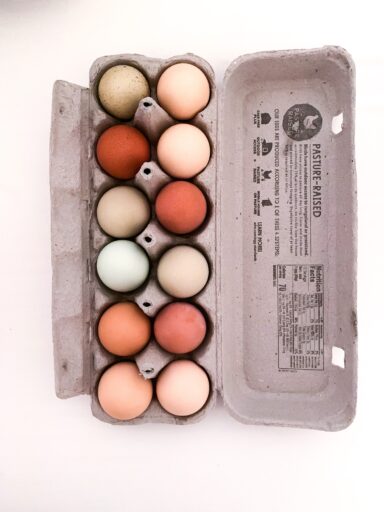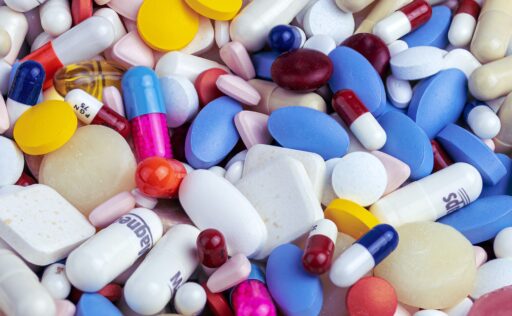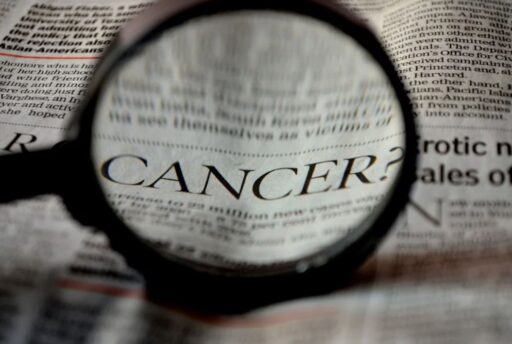It’s a classic Western breakfast: eggs on toast. But eggs have gained a false reputation as a nutritious breakfast food. If you’ve ever stopped to research, “Are eggs and toast healthy?” you’ll be shocked at what you learn.
- An impartial, evidence-based nutrition source
- 1. It’s illegal for eggs to be labeled “healthy,” “good for you” or even “safe”
- 2. Eggs promote cancer, diabetes and cardiovascular disease
- 3. American health organizations mislead us because they rely on industry-influenced, government-sponsored nutrition guidelines
- What about toast?
- So, are eggs and toast healthy?
An impartial, evidence-based nutrition source
Let’s turn to NutritionFacts.org for an impartial, evidence-based review. According to its website, NutritionFacts.org is a science-based nonprofit organization founded by Dr. Michael Greger. It is “a strictly non-commercial public service health charity” which accepts donations from users. It is entirely free, with no ads and no corporate sponsorships, to avoid conflicts of interest.
1. It’s illegal for eggs to be labeled “healthy,” “good for you” or even “safe”

Nutrition Facts reviewed information exchanged between the U.S. Department of Agriculture (USDA) and the American Egg Board, which was accessible due to the Freedom of Information Act. The American Egg Board is a promotional group whose mission “is to increase demand for egg and egg products on behalf of U.S. egg producers” with its $10 million annual advertising budget.
The Freedom of Information Act documents reveal that the U.S. Department of Agriculture warned the egg industry that saying eggs are “nutritious” or even “safe” may violate rules against false and misleading advertising.
Per USDA regulations, it is illegal for egg advertisements to portray eggs as being “healthy” or “nutritious” because eggs exceed FDA limits for saturated fat and cholesterol in foods with these labels. The industry also cannot legally label eggs, “low in fat,” “a rich source of protein,” “a nutritional powerhouse,” “high nutritional content,” “contribute nutritionally,” “healthful” or “good for you.”
The egg industry can’t even legally call eggs “safe.” This is because 142,000 are salmonella-poisoned every year. The only way to avoid salmonella in eggs? Avoid them all together. The American Egg Board’s own research showed that sunny side up should be considered unsafe. Because of bird flu viruses, they must be cooked firm to be safe.
What, then, are they allowed to say? The industry is allowed to market eggs “nutrient-dense” because there is no legal definition of it. They can say that it “can reduce hunger” and is “satisfying” and “fresh.” The industry can’t afford to tell the truth about eggs or the hens that lay them.
2. Eggs promote cancer, diabetes and cardiovascular disease

Eggs and Cancer
Numerous studies and meta-analyses link eggs to breast cancer, prostate cancer, ovarian cancer, colon cancer and colorectal cancer. They are connected through two primary mechanisms: cholesterol and choline. Although choline is an essential nutrient, animal-based sources of it are associated with higher risk of heart disease, stroke and death. In contrast, plant-based sources of choline provide us with this nutrient without increased risk of disease.
Cholesterol supports the rapid growth and proliferation of cancer cells. Even the industry-influenced federal dietary guidelines now recommend people “eat as little dietary cholesterol as possible.” Eggs also can be a source of carcinogenic chemicals formed during high temperature frying.
A few notable non-industry-funded studies have found that those who ate half an egg a day had a 14% increased risk of advanced and fatal prostate cancer. Just a few eggs a week is linked to 90% increased risk of colorectal cancer.
Men who ate even less than one egg a day doubled their risk of prostate cancer progression. Those who ate the most had a 70% increased risk of lethal prostate cancer. Men who consumed two and a half or more eggs per week had an 81% increased risk of lethal prostate cancer compared to those who consumed less than half an egg weekly.
In contrast, eating plant-based can change your gut microbial community to protect you against its development.
Eggs and Arterial Function
Studies by the American Egg Board claimed that eating eggs does not harm our arteries. They based this on the fact that participants who already had very high cholesterol levels (from consuming the standard American diet) did not have worse cholesterol after eating two eggs. This conclusion obscures the reality that these participants had already maxed out the amount of cholesterol they could absorb.
When people with healthy cholesterol levels ate the same number of eggs, their cholesterol levels shot up. Yet fat-free, cholesterol-free substitutes improved cholesterol levels and endothelial function. In other words, even their own studies showed that not eating eggs is better for our arteries and cardiovascular system.
Furthermore, eating eggs increases the risk of heart attack and stroke independent of whether you already have cholesterol levels. A study in the Canadian Journal of Cardiology also found that those who eat the most eggs have a 19% higher risk for cardiovascular problems.
Eggs and Diabetes
Just a single egg a week increases the odds of developing type 2 diabetes by 76%. Eating two eggs a week increases the odds by 97%. Those eating more than 5 eggs per week had three times greater risk of type 2 diabetes than those eating less than one egg a week. For those who already have diabetes, eating one egg a day doubles the odds of all-cause mortality.
Another review found a 39% higher risk of diabetes in people who consume three or more eggs weekly. According to a 2021 study in the British Journal of Nutrition that surveyed 8,000 participants, eating one or more eggs daily can increase the risk of diabetes by 60%. A review of fourteen studies published in the journal Atherosclerosis showed that people who eat the most eggs increase their risk of diabetes by 68%.
Risk of gestational diabetes also increases with egg consumption. In a study in the American Journal of Epidemiology, research found that women who ate one or more eggs a day had a 77% greater risk of diabetes compared with those who consumed the least.
3. American health organizations mislead us because they rely on industry-influenced, government-sponsored nutrition guidelines

Why is it, then, that when you Google search, “Are eggs healthy?” results from the American Heart Association (AHA), Mayo Clinic, Healthline, Cleveland Clinic, and WebMD tout the supposed health benefits of eggs?
Well, groups like The Mayo Clinic, Healthline, WebMD and the Cleveland Clinic receive funding from corporate sponsors and subscribe to government-sponsored Federal Dietary Guidelines for Americans, which has been heavily influenced by corporate interests. Furthermore, these sites are part of the mainstream medical establishment and are not impartial nutrition sources.
It is well-established that medical schools fail to provide adequate training in the use of nutrition to prevent and treat chronic disease, as indicated by research studies published in 2017, 2015, 2014, 2014, 2014, 2010, and dating all the way back to 1985. Also evident is the fact that America’s for-profit hospitals are motivated to treat disease with pills and procedures, not prevent it through nutrition.
Additionally, American health organizations like the AHA have partnered for years with food industries that promote the very products that leads to the diseases they aim to fight. For example, the AHA has partnered with Eggland’s Best for years.
Organizations like these often rely on contributions from meat, dairy, egg and pharmaceutical organizations and do not want to alienate their donor base. Additionally, given that only about 10% of the U.S. population is vegan or vegetarian (as of January 2022), the AHA is likely made up of people who consume animal products. It’s hard to promote something that you yourself don’t abide by.
As such, they reference egg industry-funded research. A meta-analysis in the American Journal of Lifestyle Medicine examined all research studies published from 1950-March 2019 looking at the effect of eggs on blood cholesterol. The study also examined funding sources and their influence on study findings.
Prior to 1970, research showed no industry influence on cholesterol research. But industry-funded studies increased to 60% between 2010-2019. Over 85% of the research studies, no matter the funding source, showed that eggs have negative effects on blood cholesterol. But 49% of industry-funded studies report conclusions that conflict with non-industry funded trials.
What about toast?
When it comes to your toast, opt for whole grain to reap maximum health benefits and avoid the negative impacts of refined grains. Much of the nutrition is stripped away in refined grains. Whole grains provide essential nutrients, like complex carbohydrates, dietary fiber to support gut health, minerals and B vitamins, which are essential for a healthy nervous system. Three portions of whole grains daily can decrease blood cholesterol, blood pressure and risk of type 2 diabetes risk, coronary artery disease and stroke. In contrast, refined grains (like white bread) can increase risk of type 2 diabetes.
So, are eggs and toast healthy?
So, are eggs and toast healthy? The science proves: away with the eggs. Instead, top a whole-grain bread with a delicious food that can legally be labeled healthy and safe and does not promote disease. Think peanut butter and banana, avocado and Everything Bagel seasoning, almond “ricotta” and tomato. The options are endless – and eggless!
For a helpful Health Concerns with Eggs fact sheet by the Physicians’ Committee for Responsible Medicine and quick reference guide for healthful egg replacements in cooking and baking, see here.


